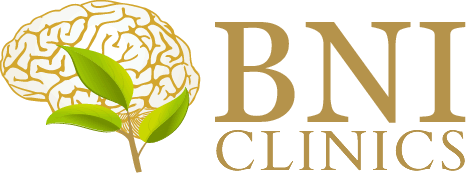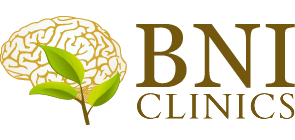You’ve tried everything: a slew of medications and countless hours of every therapy under the sun. You still struggle to get out of bed every morning. Showering seems like an insurmountable task, and your laundry has piled up so much that you are running out of clothes to wear. You don’t talk to your friends anymore. Leaving the house is too draining, and phone calls fill you with irrational anxiety. You feel like a failure. Why is existing so difficult?
You’re trying so hard to be better, but nothing works. Anything that shows signs of helping doesn’t last, and you wonder if it’s all for nothing. You don’t know what to do. You feel hopeless. Is there anything that can change your world from this dreary shade of gray into something brighter that you can find joy living in?
If this story sounds like you or someone you love, you’re not alone. 7.2% of Californians reported experiencing a major depressive episode (MDE) in recent years, with a pattern trending upward. We also know 30% of those with major depressive disorder had treatment-resistant depression in 2021. That indicates 2% of all Californians may have treatment-resistant depression.
Thankfully, BNI Clinics offers transcranial magnetic stimulation therapy (TMS), which has been proven to be effective against treatment-resistant depression, for both adults and teens. We are doctor-owned and operated, so you can be confident that you’ll receive quality TMS services from a team you can trust.
What Does TMS Treat at BNI Clinics?
TMS is FDA-approved for major depressive disorder, migraines, OCD, and helping clients quit smoking. There is substantial evidence of TMS’s efficacy in treating these conditions. Other areas require more scientific study before TMS is widely accepted as effective for them, but there are promising signs. Some of the other conditions TMS is used to treat include:
- Substance use disorders
- Alzheimer’s
- Bipolar disorder
- Borderline personality disorder
- Eating disorders
- Post-traumatic stress disorder
- Schizophrenia
Scientists and practitioners learn more about TMS every day. It is a treatment method with the potential to change lives, and in some cases, save them.

What Should I Expect During TMS at BNI Clinics?
Before we begin, you’ll be guided to a treatment room in an office setting, and sit down in a comfortable chair. We’ll ask you to remove your glasses and any metallic jewelry you may have so they don’t interfere with the magnet. Then we give you earplugs to drown out any sounds from the machine or distractions from the environment..
TMS is entirely non-invasive. You’ll remain awake and shouldn’t experience any pain during the TMS process. Someone from our medical team will place the magnet on your head, which will deliver small magnetic pulses to your scalp.. Depending on your treatment plan, our team will adjust the position, frequency, and pulse strength to best treat your condition.We will also fine tune the settings based on your brain’s unique response to ensure the best result.
The pulses will vary, with pauses in between to allow the magnet to cool off. TMS treatments take 40 minutes, and you’ll be able to watch TV or look at your phone during your treatment to pass the time. Our TMS services will function the same way in your later appointments, though we can make adjustments to the therapy based on your symptoms and progress. After your treatment is done for the day, you can return to regular activities. Side effects may include scalp discomfort, headache, tingling in the face, and dizziness, but they aren’t common, and they typically subside soon after the treatment session ends.
The FDA-approved length of treatment is five days a week for six weeks, for a total of 30 TMS sessions. Most clients notice a difference in their sleep and alertness two weeks into treatment, and general increased mood by the end of the six-week treatment.
What Is Transcranial Magnetic Stimulation Therapy (TMS)?
Transcranial magnetic stimulation therapy (TMS), first invented in 1985, is a non-invasive procedure involving a magnetic coil that sends pulses to influence the electrical activity in your brain. TMS is most commonly used for depression that hasn’t improved through other methods, but can also be used for other conditions. It has minimal side effects compared to other treatment modalities, making it an important asset to mental healthcare.
What Does TMS Therapy Do?
TMS works by sending magnetic pulses to parts of your brain responsible for the regulation of mood, and subsequently, depression. Scientists theorize that these parts of the brain are less active in people with depression. During TMS, the magnetic signals stimulate the neurons in these parts of the brain, altering their firing patterns and helping to break the cycle of dysfunction. Subsequently, most people see improvements in their depression symptoms. Often, the improvement is significant. In some cases, people undergoing TMS see complete remission of their depression.
What Is the Success Rate of TMS?
While TMS was invented in 1985, widespread study and the emergence of evidence for its efficacy are more recent. More research is required to learn what forms of TMS are most effective, but there is significant evidence that TMS is a worthwhile treatment option.
A 2020 study by the Stanford University School of Medicine suggests an individualized, intensified version of TMS is successful in reducing depression symptoms for up to 90% of those undergoing the treatment. Another small study Stanford conducted using the same method a year later found that there was an average 52.5% decrease in the treatment group’s rating on the Montgomery-Åsberg Depression Rating Scale (MADRS). Only 11% of the placebo group reported an improvement in their symptoms. In 2022, this method of TMS, known as Stanford Neuromodulation Therapy (SNT), was cleared by the FDA to treat depression.
13 different studies on traditional types of TMS between 1996 and 2018 indicated an improvement in symptoms due to forms of TMS. These improvements were mostly seen in depression that was unresponsive to other forms of treatment. It’s important to note that the methods of all of these studies were different, and the exact success rate depends on the people involved. Factors related to the treatment included strength and number of magnetic pulses used in the treatment, type of coil used, and frequency of treatments given. Scientists and practitioners are still studying and trying to improve TMS, hoping to discover the quickest and most effective method. Scientists have hope of TMS being used to treat patients in crisis who are at immediate risk of suicide, and preliminary evidence suggests it’s possible. One thing is certain, however: TMS is effective for many people, and is worth trying if attempts at other forms of depression treatment have been unsuccessful so far.

Learn More About TMS With BNI Clinics
TMS is a safe and effective alternative to antidepressants with few side effects, and we have seen positive results with our patients here at BNI. In 2022, 18% of Californians were diagnosed with depression, so treatment options such as TMS are needed. If you’re experiencing a mental health condition that isn’t responding to other types of treatment, especially if that condition is depression, we encourage you to seek out BNI Clinics’ transcranial magnetic stimulation therapy.
Located in the Agoura Hills, California area, BNI Clinics offers a variety of psychiatric and psychological care for adults as well as teens. With our operations led by psychiatrists, we are experts in our field and are dedicated to bringing you and your family peace of mind. For more on how we can serve you and enhance the quality of your life for years to come, call us at (310) 691-5005.
NAVIGATION

BNI clinics provides premier psychiatric and psychological services. With beautifully appointed clinics in Agoura Hills, Los Angeles, California. BNI Clinics welcomes the opportunity to serve you or your loved one and help enhance the quality of life for years to come.
